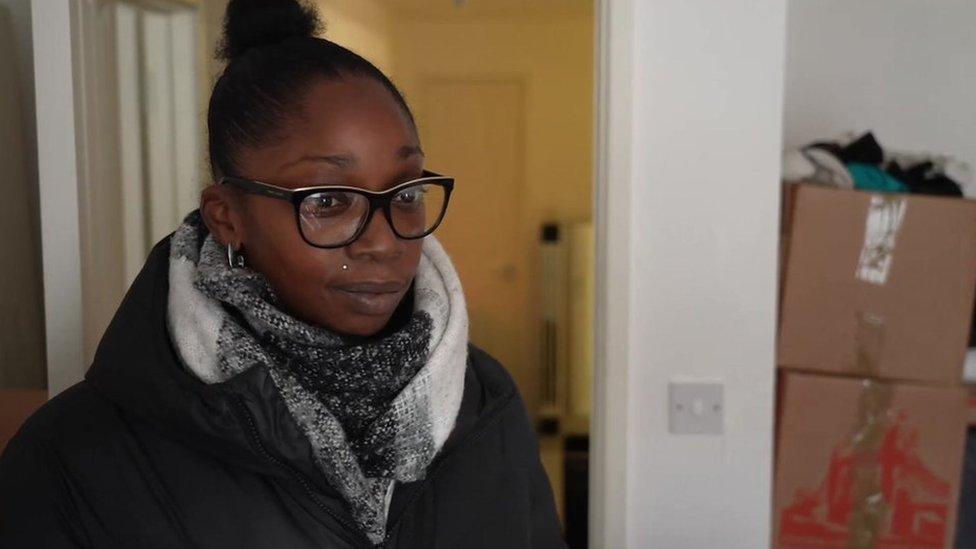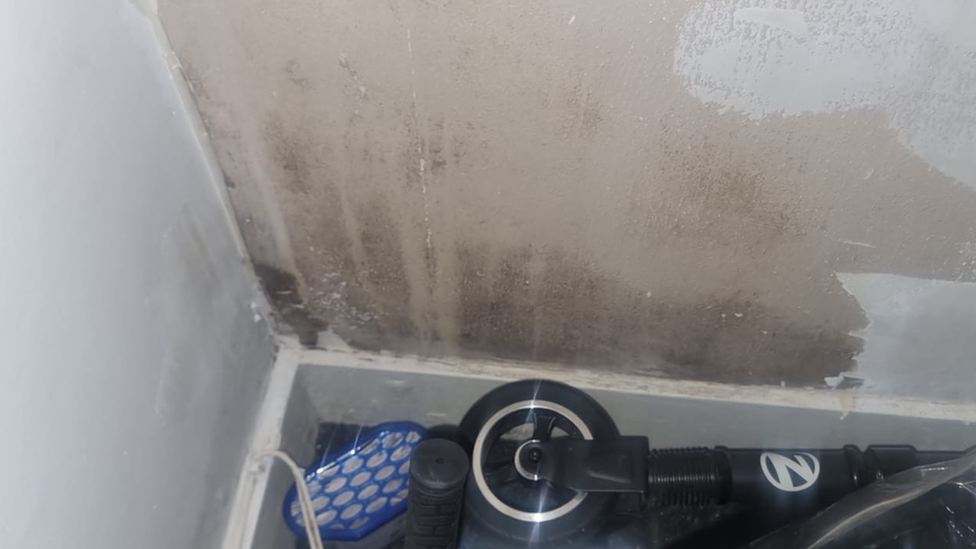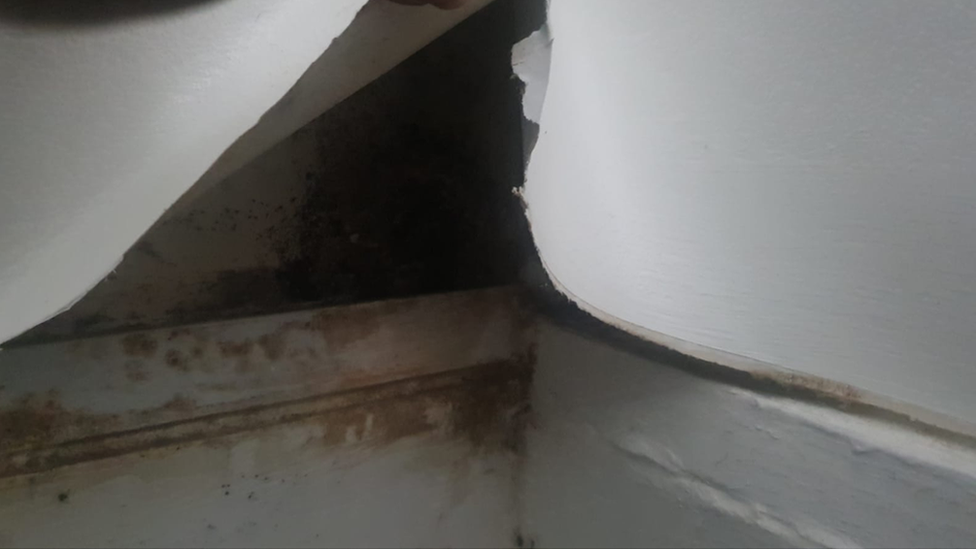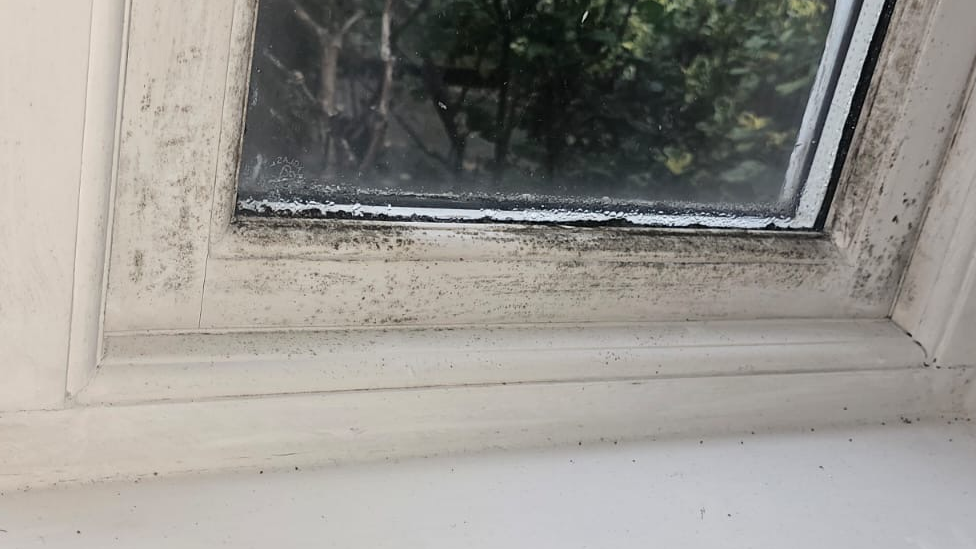'I have had pneumonia about 40 times'
- Published

Nadine Richards has sickle cell disease and said people do not realise how serious it can be
A mother from south-east London said living in damp and mouldy conditions for more than a decade had taken its toll on her family's health.
Nadine Richards and her 19-year-old son have sickle cell disease - a serious condition where cold environments can cause painful episodes known as a crisis.
"I feel like I am just fighting to live normally," she said.
Her social landlord Hyde said it was due to complete works before Christmas.
Ms Richards said she caught pneumonia for the first time after moving in to her socially rented flat in Lewisham.
"It was fungal pneumonia and I have had it around 40 times," she said. "I'm lucky to be alive".

Ms Richards said she has lived in damp and mouldy conditions for more than a decade
Her seven-year-old has been diagnosed with a mould allergy and asthma.
Ms Richards said earlier this year they were both admitted to hospital at the same time.
"He was in hospital with a collapsed lung and Influenza B," she said.
Government data said damp and or mould in homes in England was estimated to be associated with approximately 5,000 cases of asthma and approximately 8,500 lower respiratory infections among children and adults.
Its research also found that, each year, the NHS spends an estimated £1.4bn on treating illnesses associated with living in cold or damp housing.
And when wider societal costs are considered, that figure rises to £15.4bn.

Ms Richards said she is "fighting to live normally"
Ms Richards' social landlord, Hyde, is repairing her property and she has been placed in temporary accommodation.
But it has an ant infestation, signs of damp and mould and the heating has not worked since August, she said.
'I don't want to die'
"I don't think people realise how serious sickle cell can be," she said. "It can kill. Our environment needs to be warm.
"I don't want to die by contracting pneumonia, I am sick all of the time - that's not fair."
In December 2020, two-year-old Awaab Ishak died from a respiratory condition caused by exposure to mould at his Rochdale home, an inquest found.
The coroner asked the government to take action to prevent future deaths, external.

Ms Richards said living in damp and mouldy conditions could kill her
Neal Ackcral, chief operating officer at Hyde, said: "I know how distressing damp and mould can be, and I'm sorry for any distress which Ms Richards has experienced.
"This is why we quickly relocated Ms Richards into a temporary home while we carried out the necessary work.
"Unfortunately, Ms Richards has experienced some problems in her temporary home.
"We've been working closely with Ms Richards, and her home is ready to return to in time for Christmas.
"We're replacing all her white goods, beds and mattresses and have offered to pay for her clothes to be laundered. We'll continue to closely support Ms Richards until she is settled into her home."

Follow BBC London on Facebook, external, Twitter , externaland Instagram, external. Send your story ideas to hellobbclondon@bbc.co.uk